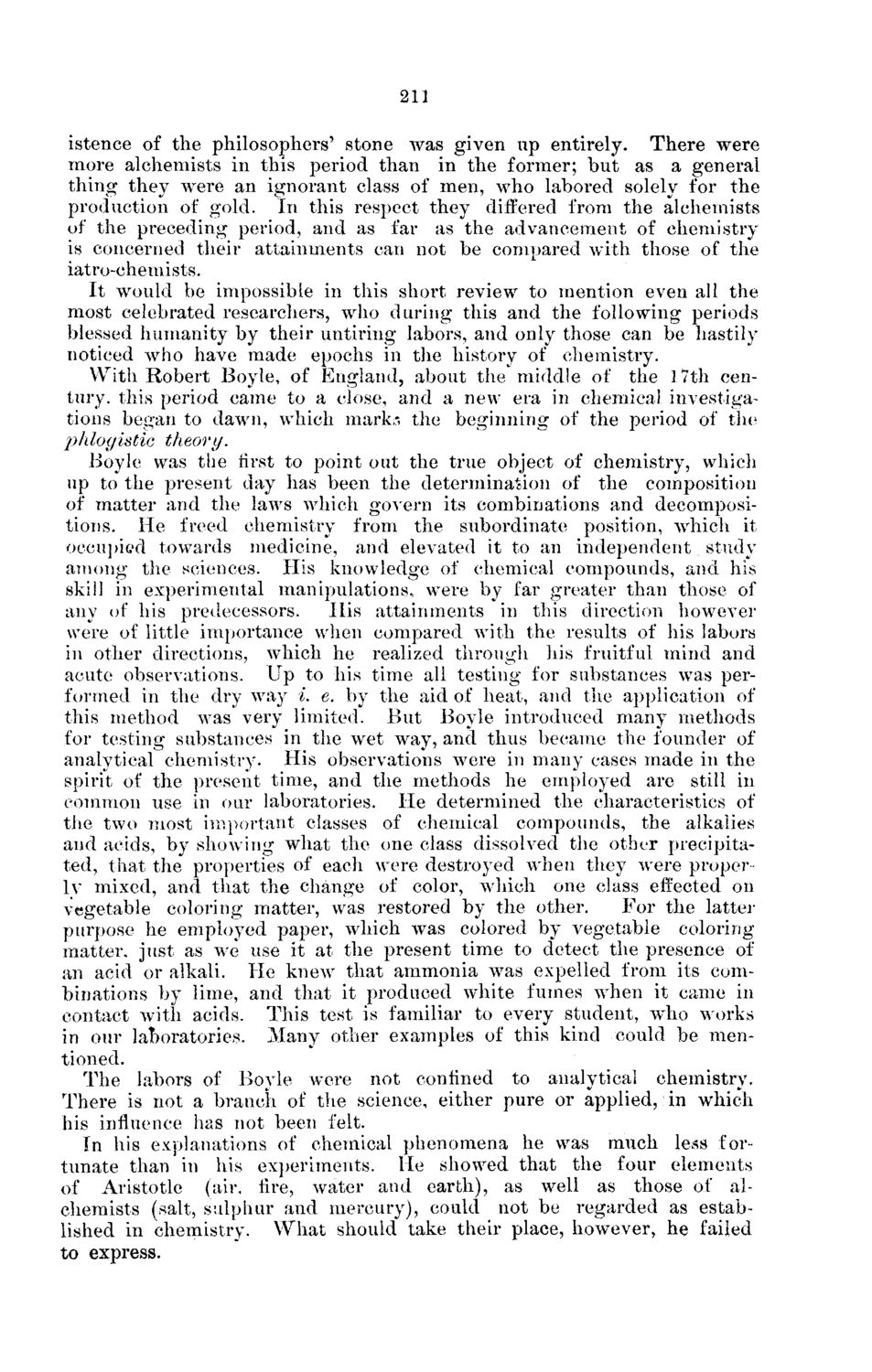| |
| |
Caption: Board of Trustees Minutes - 1878
This is a reduced-resolution page image for fast online browsing.

EXTRACTED TEXT FROM PAGE:
211 istence of the philosophers' stone was given up entirely. There were more alchemists in this period than in the former; but as a general thing they were an ignorant class of men, who labored solely for the production of gold. In this respect they differed from the alchemists of the preceding period, and as far as the advancement of chemistry is concerned their attainments can not be compared with those of the iatro-chemists. It would be impossible in this short review to mention even all the most celebrated researchers, who during this and the following periods blessed humanity by their untiring labors, and only those can be hastily noticed who have made epochs in the history of chemistry. With Robert Boyle, of England, about the middle of the 17th century, this period came to a close, and a new era in chemical investigations began to dawn, which mark.- the beginning of the period of tin1 phlogistic theory. Boyle was the first to point out the true object of chemistry, which up to the present day has been the determination of the composition of matter and the laws which govern its combinations and decompositions. He freed chemistry from the subordinate position, which it occupied towards medicine, and elevated it to an independent study among the sciences. His knowledge of chemical compounds, and his skill in experimental manipulations, were by far greater than those of any of his predecessors. His attainments in this direction however were of little importance when compared with the results of his labors in other directions, which he realized through his fruitful mind and acute observations. Up to his time all testing for substances was performed in the dry way i. e. by the aid of heat, and the application of this method was very limited. But Boyle introduced many methods for testing substances in the wet way, and thus became the founder of analytical chemistry. His observations were in many cases made in the spirit of the present time, and the methods he employed are still in common use in our laboratories. He determined the characteristics of the two most important classes of chemical compounds, the alkalies and acids, by showing what the one class dissolved the other precipitated, that the properties of each were destroyed when they were properly mixed, and that the change of color, which one class effected on vegetable coloring matter, was restored by the other. For the latter purpose he employed paper, which was colored by vegetable coloring matter, just as we use it at the present time to detect the presence of an acid or alkali. He knew that ammonia was expelled from its combinations by lime, and that it produced white fumes when it came in contact with acids. This test is familiar to every student, who works in our laboratories. Many other examples of this kind could be mentioned. The labors of Boyle were not confined to analytical chemistry. There is not a branch of the science, either pure or applied, in which his influence has not been felt. In his explanations of chemical phenomena he was much less fortunate than in his experiments. He showed that the four elements of Aristotle (air, fire, water and earth), as well as those of alchemists (salt, sulphur and mercury), could not be regarded as established in chemistry. W h a t should take their place, however, he failed to express.
| |